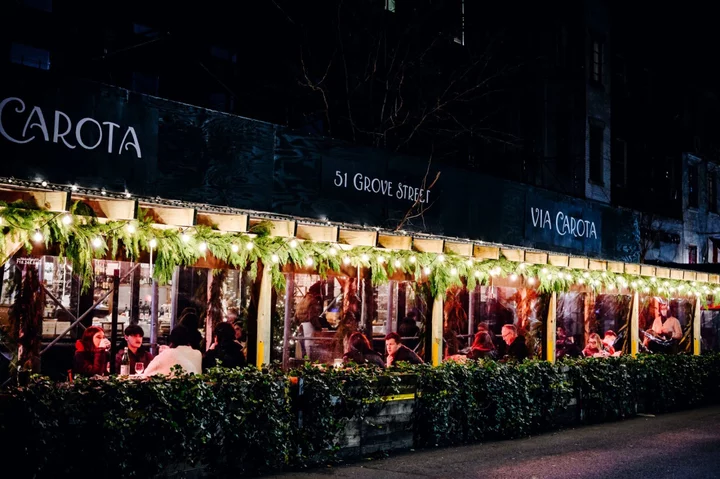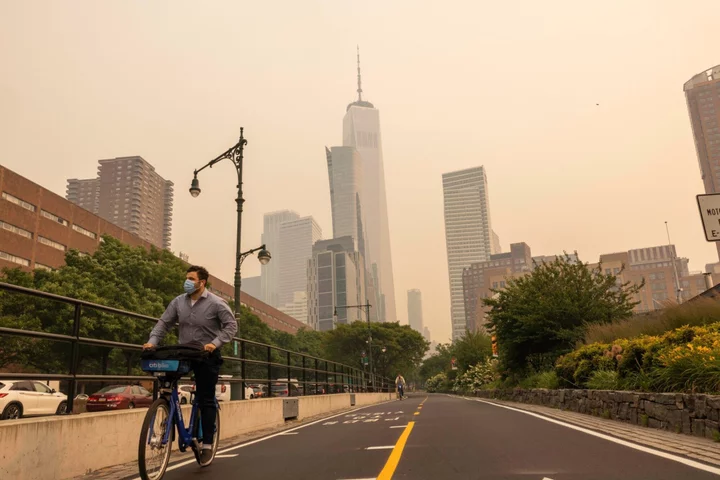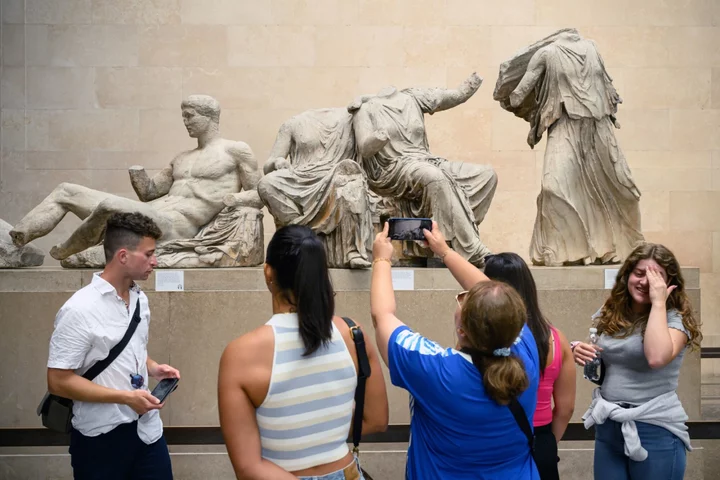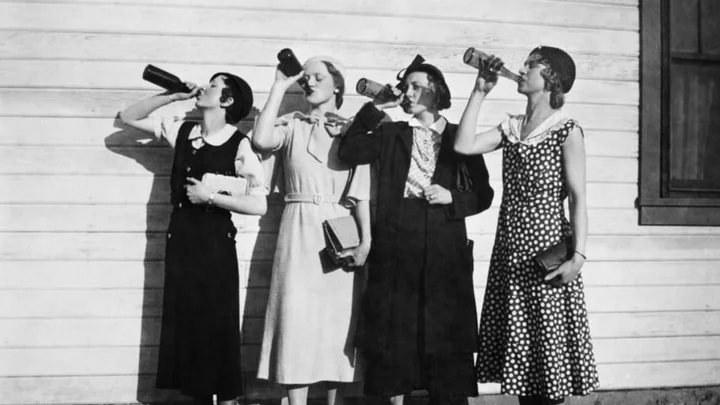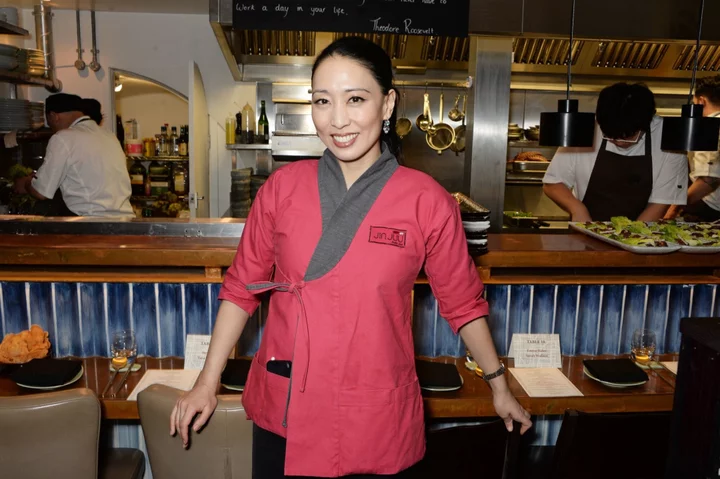The dining sheds that proliferated the streets of New York City during the pandemic will be allowed to continue — but operating only 10 a.m. to midnight and April through November under legislation introduced in the New York City Council this week.
The legislation has the support of Mayor Eric Adams and is expected to be passed by the Council in June.
That’s reason to celebrate for lovers of al fresco dining, but a cause of concern for those anxious the structures encourage rats, noise and traffic obstacles.
The sheds, charming to some and an eyesore to others, began popping up in late spring of 2020. That’s when New York officials, desperate to rescue the city’s restaurant industry and the more than 300,000 jobs associated with it, loosened restrictions to allow outdoor dining while nearly all indoor gatherings were prohibited.
More than 12,000 restaurants opted to take advantage of the Open Restaurants program, setting up tables and chairs on sidewalks and in roadways.
Sidewalk dining will be allowed to continue year-round for restaurants that have sidewalk capacity. The dining sheds will have to be taken down in the off season.
In a statement, Adams said the program had “saved 100,000 jobs and countless local restaurants at the height of the pandemic, while helping the city reimagine its public spaces.” A study released by the city’s Department of Transportation in October 2022 found the program had significantly improved business in neighborhoods where it was in effect.
But the program has also had some voluble detractors who complained about some at-times unsightly sheds, the takeover of city parking spaces by structures erected in the roadways, and the feast diners’ leftovers provided for the city’s opportunistic rodents.
Adams, in his statement, also acknowledged the problems, saying that while that program had saved 100,000 jobs,“It also left hundreds of abandoned sheds on our streets that have become havens for rats and eyesores for New Yorkers.”
“For months, I have been saying loud and clear that outdoor dining is here to stay and we need to get it right,” the mayor said.
Read more: NYC Restaurants and Residents at Odds Over Outdoor Dining Future
The new legislation aims to address some of the criticisms. Outdoor dining won’t be allowed between the hours of midnight and 10 a.m., nor between Dec. 1 and March 31. Restaurants located in landmark districts or in front of landmark buildings would be required to seek approval from the city’s Landmarks Preservation Commission and request approval to operate sidewalk or roadway cafes.
Manhattan restaurants located south of 125th Street will have to pay higher fees for outdoor dining licenses. Specific design guidelines for the outdoor dining structures will be decided later.
Andrew Rigie, executive director of the New York City Hospitality Alliance, a trade group that represents restaurants, said the final agreement will be a net positive for the industry.
“We’re thrilled the Mayor and City Council have agreed to terms for an historic permanent outdoor dining program that includes sidewalk cafes and streeteries,” Rigie said in a statement. “The new law will cut the red tape and fees for restaurants to participate when compared to the overly restrictive pre-pandemic sidewalk café licenses, which excluded so many restaurants throughout the five boroughs from offering al fresco dining.”
In a statement, Council Press Secretary Breanna Mulligan said: “In creating a permanent outdoor dining program, the Council has prioritized fixing some of the greatest obstacles to outdoor dining prior to the pandemic that limited restaurants and neighborhoods throughout our city from equitably participating and benefiting.”

